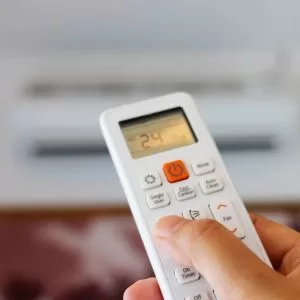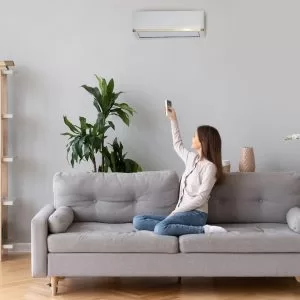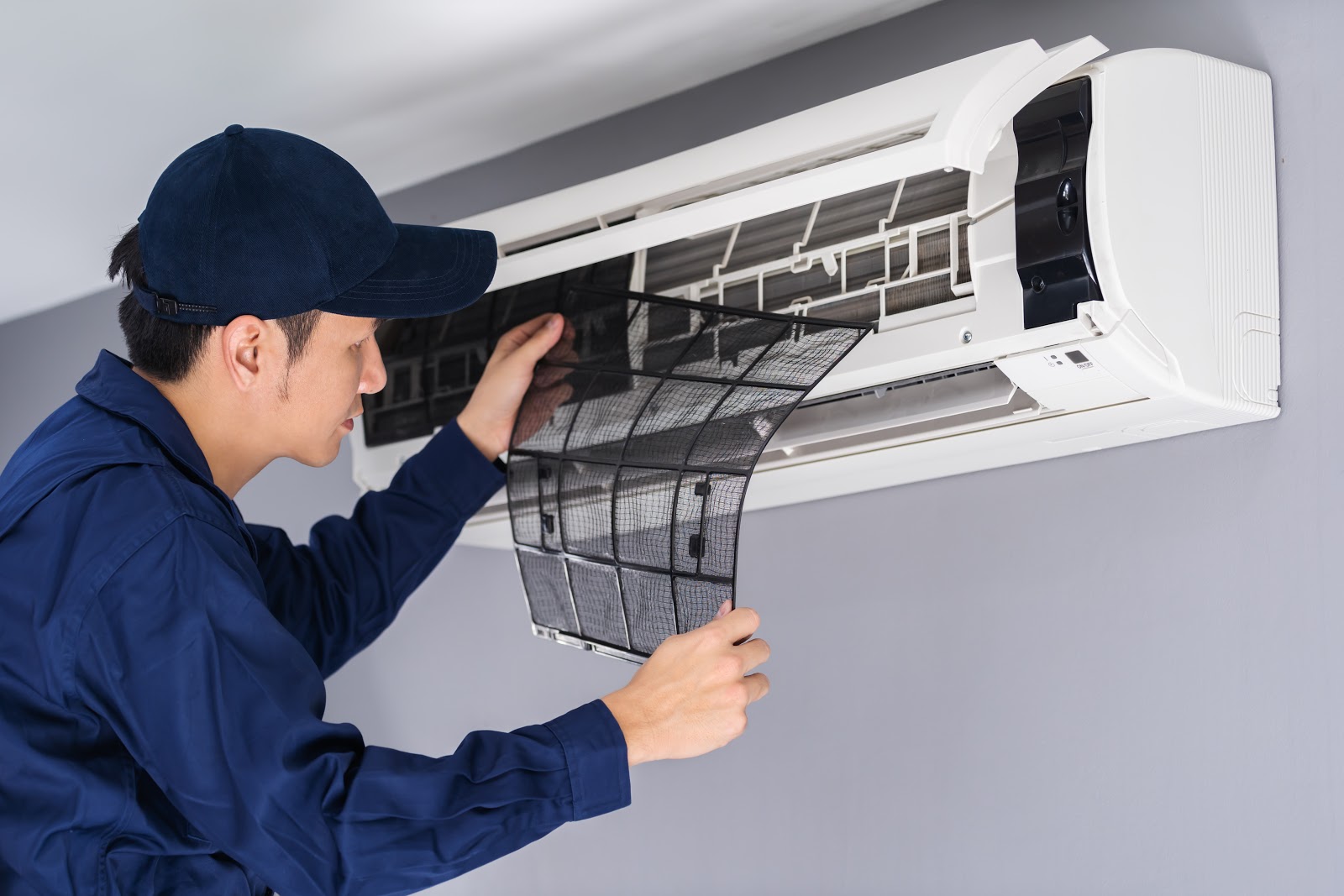
In the bustling city of Brisbane, where HVAC systems are essential for workplaces, maintaining the efficiency and cleanliness of commercial air conditioning units is crucial. This article delves into a common, yet often overlooked aspect of commercial air conditioning services: the unpleasant odours that can emanate from these systems. Whether it’s a newly installed unit needing commercial air conditioning installation oversight, or an older system requiring meticulous commercial air conditioning maintenance, understanding the root causes of these odours is key to ensuring a fresh and healthy air quality in your commercial space.
Often, the hustle of daily operations in commercial settings can lead to neglect in regular HVAC maintenance. However, the implications of a neglected air conditioning system extend beyond just a lack of comfort. The presence of bad smells from an air conditioner signals potential health hazards, stemming from various sources such as mold, mildew, and even leaks that can compromise air quality. This article not only identifies these common culprits but also provides practical solutions and maintenance tips to combat them effectively.
HVAC in Brisbane is especially important and amplified due to the climate, so understanding the nuances of commercial air conditioning service requirements is essential. From installation to regular maintenance checks, each step plays a pivotal role in preventing and addressing these odorous issues.
By exploring various scenarios and solutions, this article serves as an informative guide for businesses in Brisbane, ensuring their commercial air conditioning systems not only function optimally but also contribute to a pleasant and healthy work environment.
Getting to the Source of the Stink
If you’re one to run your air conditioner pretty much year round, here’s a tip. Get a maintenance service every now and then, just to check that everything is running as it should. This is especially true if your air con is getting a bit ‘pongy’. However, to spread those services out – we know, it’s a chore – but you should really change your filters. As mentioned, this is typically the culprit for bad smells. changing your filters is a surprisingly easy cleaning process. Check out our article on air conditioner maintenance tips to learn how you can change your filter and disinfect your air conditioner in four easy steps. You might just have the simple fix for your smelly problems after changing your filters! Try it out and take a breath of fresh air afterwards.
Absolutely certain it’s not dust issues? Here are some other things that can be creating those foul odours.
Mold and Mildew
Mould and mildew are species of microscopic fungi that grow in typically moist environments. You’ll typically find it in your kitchen or bathroom in its various forms – black splotches, fuzzy white spots, or slippery orange film are the usual suspects. Mould and mildew are not only unsightly, but they can lead to health problems for those with allergies or asthma. Unfortunately, mould and mildew can build up in your air conditioner due to the excess moisture in the air ducts. To check if this is your problem, get a good look around the inside of your air conditioner (use a flashlight if you need to, and definitely some gloves). To combat mould, you’ll need to use chemicals cleaning products that target the fungus. Wipe down your air con unit, filters and any other necessary parts with a soft cloth and your powerful cleaner product, and say goodbye to mould and mildew!

Leakage
Another slightly more complex issue is the occurrence of a leakage that may be leading to odd smells. There are refrigerants in your air conditioner that work to produce cool air – these are chemical gases, called hydro fluoro carbons, that are toxic for humans and can lead to adverse health effects. For example, one of the gases, methyl mercaptan, is highly toxic at high concentrations. It has the potential to cause coughs, dizziness, nausea, skin irritation, vomiting, headaches, a sore throat, and unconsciousness. While this is at the extreme end of the spectrum, leakages are not always that fast acting. You may have a small leak in your air con which is causing an odd smell – this can exacerbate health issues over time. Should this be the fault in your air con, it’s advised that you seek professional assistance to fix it. Reach out to Air Rite Solutions on their 24/7 phone line to book a maintenance straight away and breathe easier knowing help is on the way.
Clogged Condensate Line
The condensate line is responsible for removing moisture collected by the evaporator coil as air passes over it. The coil removes humidity from the air – which in turn cools the air – and converts it to water, which drains from the condensate line and from your outdoor unit. Sometimes a clog can occur in this line, leading to water not draining properly, and eventually, a bad smell. Water sitting in this line not only gets dirty and smelly, but it can also contribute to the growth of bacteria and mold. While it’s straightforward enough to clean out the condensate line, leave any clogs for a Brisbane air con expert to service it for you.
Animals and Their Droppings
One of the least appealing sources of bad smell in air cons is animal waste. If your air conditioner had a short hiatus over the winter period, there’s a chance a small animal (like a rat or a mouse) could have curled up and died near one of the ducts. Gross, we know… but not impossible. Otherwise, there’s also the instance of passing animals dropping waste in your air conditioner, which also leads to smelly air. If it’s pesky animals that are causing you trouble, it’s a good idea to deal with the source of the problem by working out an extermination strategy. Contacting a professional who has experience with residential pest control not only can help keep bugs and other nasties at bay, it can help deter insects or animals from interfering with your air con. Further, not only do pests contribute to bad smells, but they can also cause great damage to the electrical wiring in your air conditioner as well. So, unless you want to see the problem potentially returning each year, sorting out a pest infestation fast is going to save a lot more troubles than a stinky air con.

Maintenance Tips to Keep Your Air Smelling Clean and Fresh
- Turn the power off at the source. Make sure the unit is completely off before doing any DIY cleaning or maintenance. Always be mindful of any electrical wiring when cleaning your unit.
- Clean the vents and output. Removing dust and potential mold from the exterior vent and shutters of the air conditioner should be done regularly. This is the direct outlet of air into your space and if there is visibly sediment built up you should prioritise cleaning it. Dust can be microscopic so any visible dust and mold are a disturbingly clear representation of the particles that are being pushed into the air that you are breathing.
- Change the air filters. Build up on the air filters can cause a nasty smell if not cleaned regularly. The air filters should be cleaned or replaced every 60–90 days depending on the frequency of usage, pets present, and if people with allergies live in the house. Pets mean additional fur, dust and dander entering the air in your home, which all gets sucked up into your air conditioner and through the air filter. If you have a dog or a cat in your home or any respiratory problems or allergies, you should consider changing it more often (30–60 days).
- Clean the evaporator coils. These are an often neglected part of your air conditioner, although they play a very important function. The evaporator coils are also notorious for grime build up. Therefore, it’s a good idea to clean your coils every few months, depending on usage. There are many online guides on how to do this. Just remember to look for one tailored to your specific brand of air conditioner. Also, be mindful that these coils are positioned in different areas depending on air conditioner type.
- Clean the condensate line. While you’re looking at the external parts of your air conditioner, you might want to check for any sludge or coloured water draining from the condensate line. As long as there’s no clogging, you should be fine to clean this out by flushing it with a bleach and water solution. Should there be some kind of clog or blockage, a professional should come and take a look at it.
- Put everything back. Once your air con has dried completely – and make sure it has so that you don’t risk shorting anything – reassemble the unit to put everything back the way it was.
When the Smell Lingers…
If that smell is lingering like a – well, like a bad smell – it’s time to phone in the experts to have a look (or a whiff). Getting your air con serviced is not only helpful for troubleshooting any issues, but it helps your air con last longer and work optimally. While you’re shelling out a little money for a service, you’ll save yourself in the long run by increasing the longevity and efficiency of your air conditioner.
Air Rite Solutions are experts in the air conditioning industry. They retail the most trusted brands in air conditioning, such as Fujitsu, Mitsubishi, and Toshiba, and work to service air conditioner units to keep them running like new. Contact Air Rite to book your upcoming air con service today.





